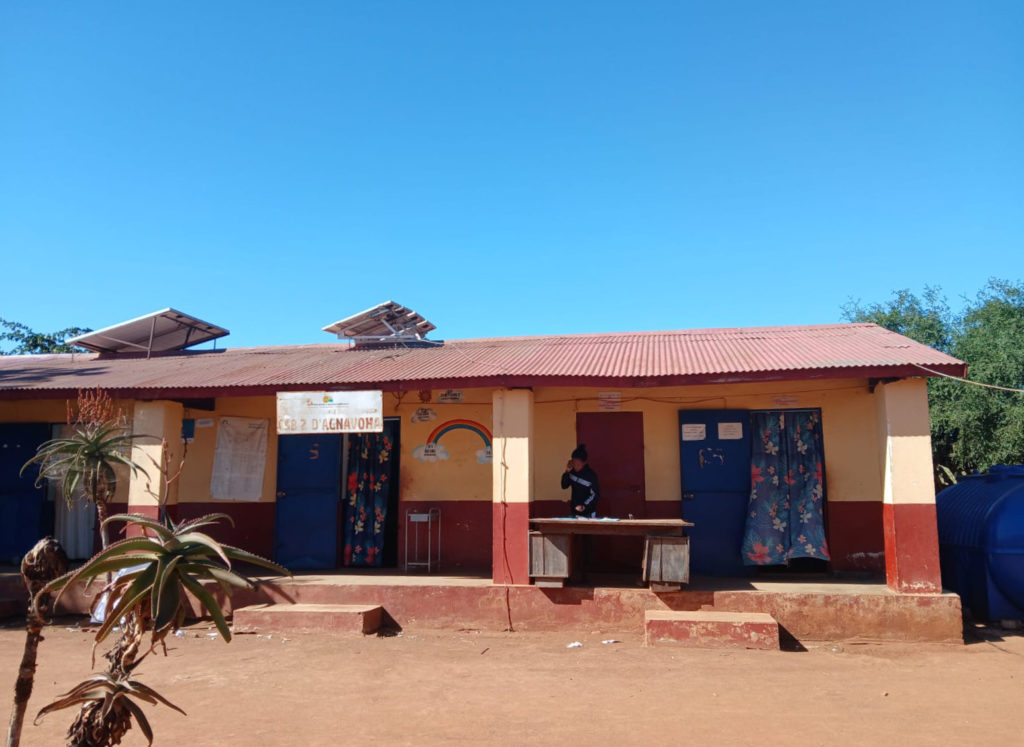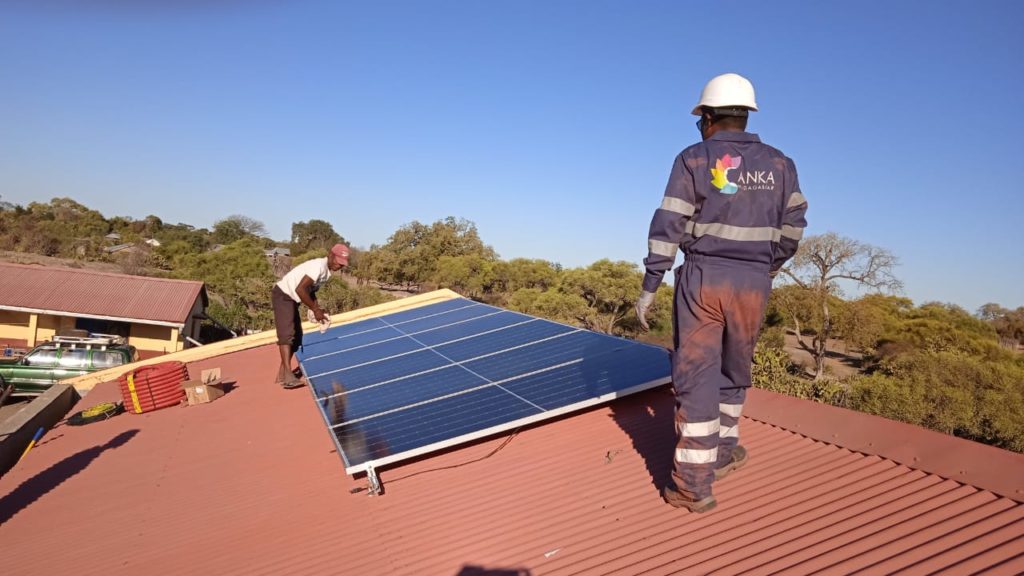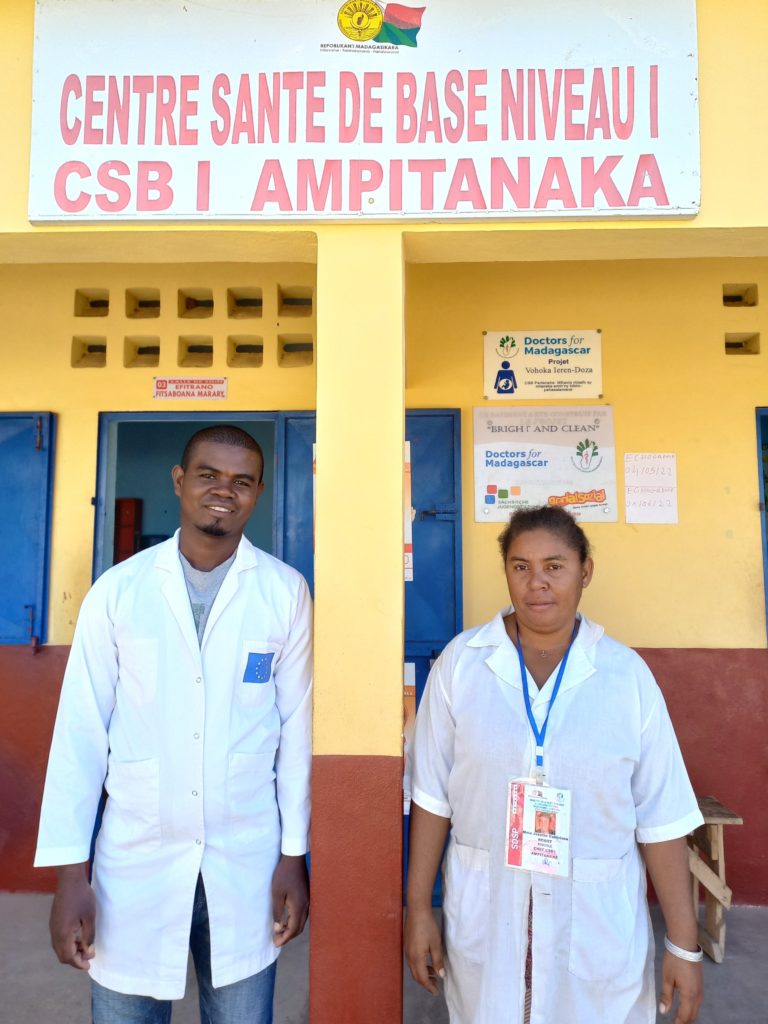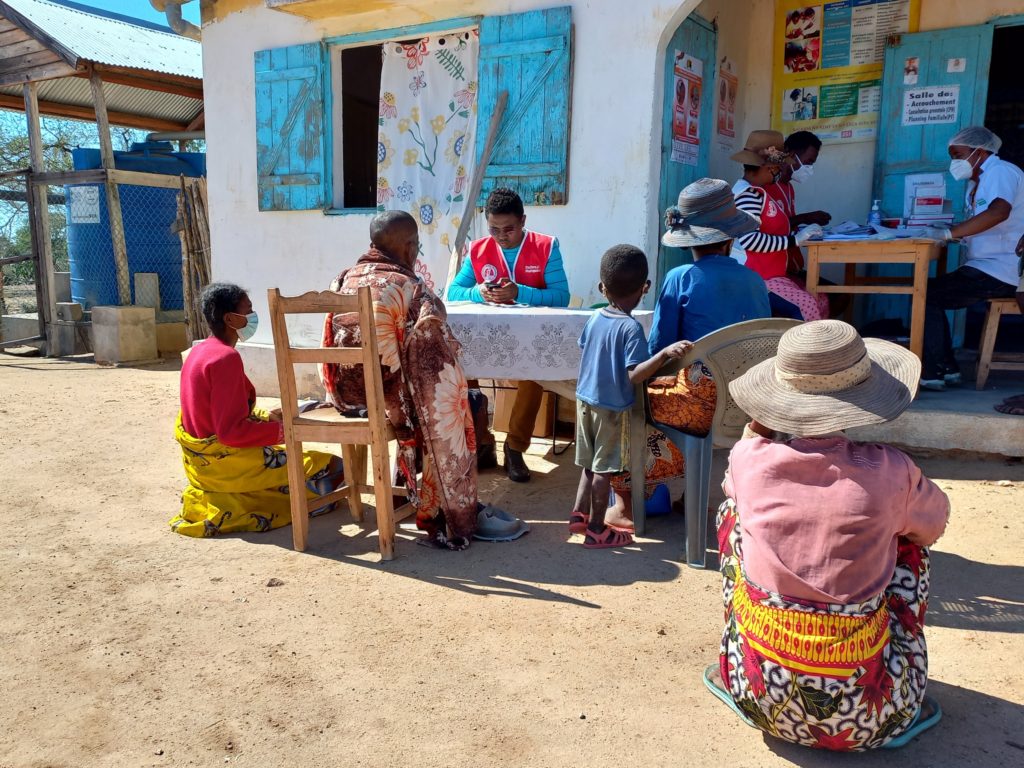Atsimo-Andrefana / Anosy, Madagascar, August 2025. atmosfair is equipping six health centres in the southwest of the country with photovoltaic modules and battery storage systems, financed by Teva Germany. This will provide the centres in rural areas with electricity for the first time, enabling them to offer basic healthcare around the clock.
Marie Laurine, Deputy Head of the Iazohambo Primary Care Facility, welcomes the technical progress: “Thanks to the electrification, medical services can now be provided in better conditions, especially at night. Permanent lighting greatly facilitates patient care, whether for deliveries, emergency care, or nighttime consultations. Furthermore, the on-call staff feels more supported by reducing nighttime insecurity. Healthcare workers can fully focus on their duties without fearing for their own safety.” atmosfair project manager Nele Erdmann adds that drugs and vaccines that need to be refrigerated can now also be stored. In addition, regular ultrasound examinations are now possible for the first time thanks to a reliable power source.

Solar power enables round-the-clock treatment
The peak output of the solar systems is tailored to the needs of each centre. The slightly larger centres have installed a 3kWp system, which corresponds to the average electricity consumption of a single-family home in Germany. The electricity can be stored in batteries and used for emergencies in the evening and at night. Local residents use surplus electricity to charge their mobile phones. They pay a small fee for this, which covers the necessary maintenance costs for the system.

The six communities where the health centres are located are not connected to the national power grid. This means that the centres need their own energy source. Solar power has the advantage that, unlike the widely used diesel generators, it can be generated without emissions. The photovoltaic system is being installed in collaboration with ANKA Madagascar, a local project developer for rural electrification. Thanks to financial support from Teva Germany, the health centres will be able to run on solar power alone by the end of this year. “For us, people’s health is our top priority, so we are delighted to support this project. Providing disadvantaged people with access to healthcare is particularly important to us,” says Salome Lehmann, Sustainability Manager at Teva in Germany.

Basic medical care for remote areas
The Madagascan government is establishing primary health centres (Centre de Santé de Base, CSB) to provide rural villages with basic medical services. However, the necessary funds for equipment and operation are often lacking. This is why the German non-governmental organisation Doctors for Madagascar supports over 50 centres in the south of the country, which were visited by a total of 270,000 people in 2024. There, doctors treat infectious diseases and injuries and carry out preventive medical check-ups, including for pregnant women. This is particularly important in Madagascar, where maternal mortality is high at 335 deaths per 100,000 inhabitants.
In recent years, atmosfair has already equipped eleven of these CSBs with photovoltaic systems. However, the solar modules on the health centres are not the only solar infrastructure that atmosfair is building in Madagascar. In recent years, we have built seven solar mini-grids that supply a total of over 3,000 households with electricity. Also in this project, ANKA Madagascar is our local partner. Such private initiatives are necessary because the electricity grid in Madagascar does not cover all regions of the country.



 Share
Share Tweet
Tweet